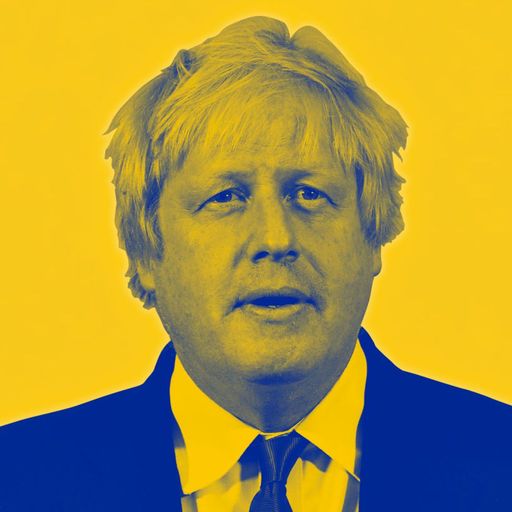Boris Johnson refuses to rule out calling election to force through no-deal Brexit
Some MPs have tipped using the vote of no-confidence as a route to delay leaving the EU on 31 October.
Boris Johnson has left the door open to ensuring Brexit
happens on 31 October even if he loses a no-confidence vote in
parliament in the run up to the day.
Asked whether he would call a possible election required if no new government can be formed if he is ousted by MPs, the prime minister said: "We are going to leave the EU on 31 October, which is what the people of this country voted for.
"It's what MPs voted for and that's what I think the parliamentarians of this country should get on and do."
Pressed on whether he would be happy to disregard the will of parliament if it did express no-confidence in him, Mr Johnson replied: "I think that MPs should get on what they have promised over and over and over again to the people of this country.
"They will deliver on the mandate of 2016 and leave the EU on 31 October."
The Times reported on Tuesday that Downing Street is drawing up plans for Mr Johnson to stay on as prime minister to ensure Brexit happens in less than 90 days' time, if he loses a vote of no-confidence when parliament returns from recess.
He could stay on even if the MPs who voted to bring him down formed a
government of national unity set up specially to ask the EU to delay
Brexit, the paper added.
The issue threatens to blow up into a full constitutional row, some experts have warned, as it could leave the Queen in a position where she has to decide whether to remove Mr Johnson herself.
They also point to a section in the cabinet manual, which says that during an election campaign the government must "observe discretion in initiating any new action of a continuing or long-term character".
Despite the lull in parliament over its summer recess, the fight between Downing Street to ensure Brexit happens "do or die" on Halloween and with MPs opposed to a no-deal divorce is building.
Some have floated the no-confidence vote idea as a way to stop the UK leaving the EU without a withdrawal agreement.
But whether enough Tory MPs could vote to oust Mr Johnson, and if Labour leader Jeremy Corbyn could then enter a coalition with them is far from certain.
His shadow chancellor John McDonnell yesterday confirmed he had "ruled out any pact, any coalition whatsoever" if Labour got into government.
Asked whether he would call a possible election required if no new government can be formed if he is ousted by MPs, the prime minister said: "We are going to leave the EU on 31 October, which is what the people of this country voted for.
"It's what MPs voted for and that's what I think the parliamentarians of this country should get on and do."
Pressed on whether he would be happy to disregard the will of parliament if it did express no-confidence in him, Mr Johnson replied: "I think that MPs should get on what they have promised over and over and over again to the people of this country.
"They will deliver on the mandate of 2016 and leave the EU on 31 October."
The Times reported on Tuesday that Downing Street is drawing up plans for Mr Johnson to stay on as prime minister to ensure Brexit happens in less than 90 days' time, if he loses a vote of no-confidence when parliament returns from recess.
The issue threatens to blow up into a full constitutional row, some experts have warned, as it could leave the Queen in a position where she has to decide whether to remove Mr Johnson herself.
They also point to a section in the cabinet manual, which says that during an election campaign the government must "observe discretion in initiating any new action of a continuing or long-term character".
Despite the lull in parliament over its summer recess, the fight between Downing Street to ensure Brexit happens "do or die" on Halloween and with MPs opposed to a no-deal divorce is building.
Some have floated the no-confidence vote idea as a way to stop the UK leaving the EU without a withdrawal agreement.
But whether enough Tory MPs could vote to oust Mr Johnson, and if Labour leader Jeremy Corbyn could then enter a coalition with them is far from certain.
His shadow chancellor John McDonnell yesterday confirmed he had "ruled out any pact, any coalition whatsoever" if Labour got into government.


